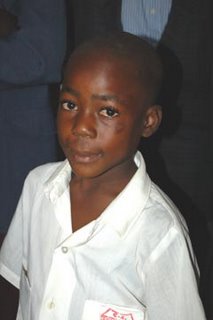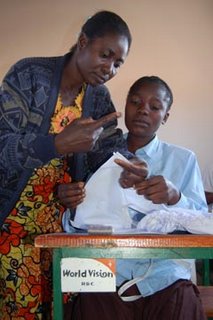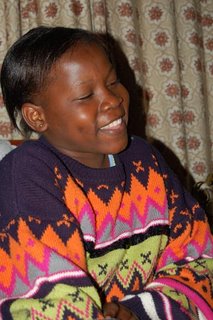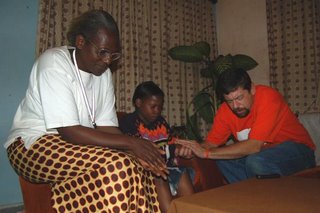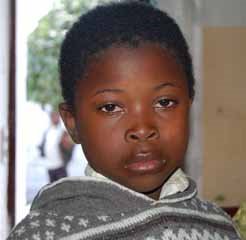While in the Congo we had the privilege of working alongside World Vision's Communications Manager for the DRC, Vianney Dong Tshisekedi. Please pray for this wonderful woman, who has the enormous task of covering (alone!) the entire Congo ... an area larger than Texas and Alaska combined ... during a very challenging time in their history.
And pray for the results of Congo's historic democratic elections which began on July 30. Results won't be known for about a month. But this process is obviously very important to long-term peace and stability in this troubled country.
Vianney wrote the attached account of one of the interviews we did together in the Katanga Province.
Gifts given from a heart of love have a funny way of multiplying in impact. Just ask Manfela Musambo Julias, 12, and his sister Nialu Netty Lydia, 8, who are sponsored children in Kolwezi, Congo.
Their sponsor recently gave the family a special gift, above and beyond their ordinary monthly sponsorship gift. With the money, the children received new clothing and also two goats ... which can be a very important source of income and sustenance in this part of the world.
The children's father, Musambo Kamota, 76, is a subsistence farmer who cultivates maize (similar to corn), cassava, beans and sweet potatoes. He does not have regular source of income apart from his harvest, which makes keeping his nine children clothed and fed a challenging task.
The children's mother, Manfela Lydia, 36, explained why the goats were so important: "What we harvest cannot allow us meet our basic needs." Musambo added that their plot is too small to provide sufficient food for the family.
But the goats changed the outlook for the family. "We started with two goats and we have been blessed so far with six more," Lydia explained. "We can sell in order to meet other basic needs of the family, such as school fees and food."
"We are really grateful to our child‘s sponsor for the gift allowing us to develop an income generating activity on top of our farming," Lydia said. "Please convey our gratitude to him!"
Julias is in the third grade at Maleozo primary school, while his sister is in grade 2. His favorite subject is French and he says he would like to become a doctor in order to help others. During his leisure time, Julias plays football with his friends. "I like to play with my friend and it makes me happy," he said.
In addition to the special gift from their sponsor, Julias and Netty have benefitted from other assistance, such as school fees, school supplies, and health care.
Thanks to World Vision, the Diur community where they live now has access to a neighborhood health center, safe water, and school supplies. "We used to walk more than 10 kilometers for health care," said Julias’ mother.
Since Julias and Netty have been sponsored by World Vision, many things changed in their families. They are very happy to be sponsored children and expressed their gratitude to their sponsors, Livingstone and Lynne.
"Look at my sponsor’s family picture!" Netty showed the photo and pointed to her sponsor, Lynne, while holding tightly to a small toy, a stuffed animal she received as a precious gift from her sponsor two years ago.

